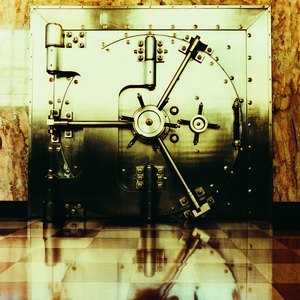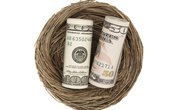
Individual retirement arrangements come in two general types -- traditional IRAs and Roth IRAs. Traditional IRAs aren't taxed when you put money in, but are taxed when you take it out, and Roths are the opposite. With either those two types of accounts, you can make just about any type of investment. One investment option is to buy a fixed-rate asset, such as a certificate of deposit, that offers a predefined rate of return for your IRA.
Fixed IRA Basics
Typically, fixed IRAs hold CDs. A CD is a special type of bank account where you agree to leave your money in the bank for a set period of time and it pays you a higher rate of interest than you'd get on an account that you could tap whenever you wanted. Since money in your IRA will probably be sitting there for many years, a fixed account with a long-term CD can be a better way to park your money than to just leave it in a money market or other cash-like account.
Fixed IRA Cons
As of the date of publication, fixed IRAs holding CDs pay very low rates of return. If you're lucky, you might be able to find an account paying 2 percent. When you're a younger investor, you have the time to absorb the market's ups and downs and can do better with a variable account that carries a little bit more risk. For example, $10,000 sitting in a fixed IRA earning 2 percent per year turns into $14,938.14 after 20 years. If you put that money into the stock market and earned 8 percent per year, the same $10,000 would turn into $49,596.48 over 20 years.
Fixed Roth IRAs
Only a limited amount of money can be contributed each year to an IRA -- Roth or otherwise. As of 2013, the cap is $5,500. If you put your entire allowable contribution into a fixed IRA paying 1.5 percent, you'll earn roughly $82.50 in tax-free interest in the first year. Investing $5,500 into a Roth-held stock fund with an 8 percent return would give you $400 of tax-free income over the same period.
Fixed IRA Benefits
Buying a fixed IRA has one key benefit over buying fixed investments outside of an IRA. When you have an asset in your IRA, you don't pay taxes on its growth. This means that even though you're earning interest and your account is growing every year, you don't have to pay any of those earnings back to the government. If you held a $5,500 fixed account outside of an IRA and earned 1.5 percent, you'd have to pay taxes on the $82.50 that you earn even if you didn't pull it out of the account. This reduces your profit and has the effect of reducing the amount of money that you have working for you.
References
Writer Bio
Steve Lander has been a writer since 1996, with experience in the fields of financial services, real estate and technology. His work has appeared in trade publications such as the "Minnesota Real Estate Journal" and "Minnesota Multi-Housing Association Advocate." Lander holds a Bachelor of Arts in political science from Columbia University.

